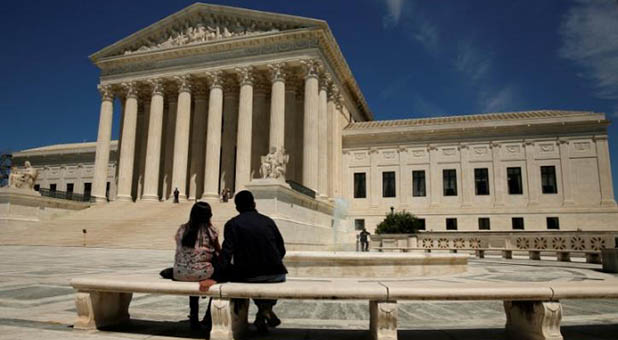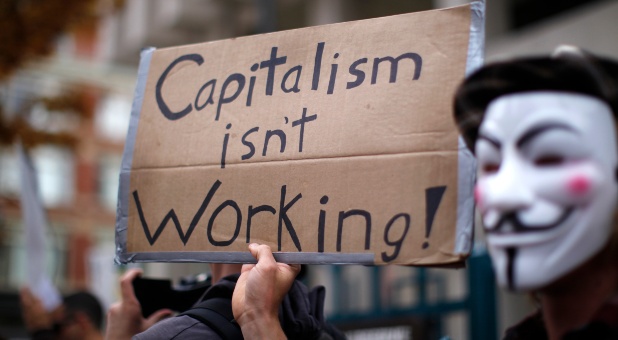Typically, court panels will issue what is known as a per curiam opinion or order when there is little room to argue about the merits of a case, and the court holds a unanimous opinion.
So, at first, it seemed that’s what the U.S. Supreme Court did when it allowed President Donald Trump’s travel ban executive order to go into effect, except in cases where a person has a legitimate reason for entering the country. The court also scheduled to have the case heard during the first session of the new term that begins in the fall. Monday was the last day of the current term for the high court.
The court’s order states, in part:
In practical terms, this means that [the executive order] may not be enforced against foreign nationals who have a credible claim of a bona fide relationship with a person or entity in the United States. All other foreign nationals are subject to the provisions of [the executive order] …
For individuals, a close familial relationship is required. A foreign national who wishes to enter the United States to live with or visit a family member … clearly has such a relationship. As for entities, the relationship must be formal, documented and formed in the ordinary course, rather than for the purpose of evading [the executive order]. The students from the designated countries who have been admitted to the University of Hawaii have such a relationship with an American entity. So too would a worker who accepted an offer of employment from an American company or a lecturer invited to address an American audience. Not so someone who enters into a relationship simply to avoid [the executive order]: For example, a nonprofit group devoted to immigration issues may not contact foreign nationals from the designated countries, add them to client lists and then secure their entry by claiming injury from their exclusion.
But upon further review, it seems the court was clearly divided. Associate justices Clarence Thomas, Samuel Alito and Neil Gorsuch joined together in their own opinion, which was authored by Thomas. It states:
I agree with the court that the preliminary injunctions entered in these cases should be stayed, although I would stay them in full. The decision whether to stay the injunctions is committed to our discretion … but our discretion must be “guided by sound legal principles” … The two “most critical” factors we must consider in deciding whether to grant a stay are ” 1. whether the stay applicant has made a strong showing that [it] is likely to succeed on the merits” and “2. whether the applicant will be irreparably injured absent a stay” … Where a party seeks a stay pending certiorari, as here, the applicant satisfies the first factor only if it can show both “a reasonable probability that certiorari will be granted” and “a significant possibility that the judgment below will be reversed.” When we determine that those critical factors are satisfied, we must “balance the equities” by “explor[ing] the relative harms to applicant and respondent, as well as the interests of the public at large” …
The government has satisfied the standard for issuing a stay pending certiorari. We have, of course, decided to grant certiorari. See ante, at 8–9. And I agree with the court’s implicit conclusion that the government has made a strong showing that it is likely to succeed on the merits—that is, that the judgments below will be reversed. The government has also established that failure to stay the injunctions will cause irreparable harm by interfering with its “compelling need to provide for the nation’s security” … Finally, weighing the government’s interest in preserving national security against the hardships caused to respondents by temporary denials of entry into the country, the balance of the equities favors the government. I would thus grant the government’s applications for a stay in their entirety.
Reasonable minds may disagree on where the balance of equities lies as between the government and respondents in these cases. It would have been reasonable, perhaps, for the court to have left the injunctions in place only as to respondents themselves. But the court takes the additional step of keeping the injunctions in place with regard to an unidentified, unnamed group of foreign nationals abroad. No class has been certified, and neither party asks for the scope of relief that the court today provides. “[I]njunctive relief should be no more burdensome to the defendant than necessary to provide complete relief to the plaintiffs” in the case … because a court’s role is “to provide relief ” only “to claimants … who have suffered, or will imminently suffer, actual harm” … In contrast, it is the role of the “political branches” to “shape the institutions of government in such fashion as to comply with the laws and the Constitution.”
Moreover, I fear that the court’s remedy will prove unworkable. Today’s compromise will burden executive officials with the task of deciding—on peril of contempt—whether individuals from the six affected nations who wish to enter the United States have a sufficient connection to a person or entity in this country … The compromise also will invite a flood of litigation until this case is finally resolved on the merits, as parties and courts struggle to determine what exactly constitutes a “bona fide relationship,” who precisely has a “credible claim” to that relationship, and whether the claimed relationship was formed “simply to avoid [the executive order]” … And litigation of the factual and legal issues that are likely to arise will presumably be directed to the two district courts whose initial orders in these cases this court has now—unanimously—found sufficiently questionable to be stayed as to the vast majority of the people potentially affected.
The decision is a victory for the president, but as Thomas, Alito and Gorsuch correctly pointed out, the Supreme Court’s decision still leaves an enormous loophole through which the nation’s security can be compromised. Further, the decision appears to infringe upon the very separation of powers the Trump administration has been attempting to rectify by going to the high court. {eoa}
See an error in this article?
To contact us or to submit an article






















